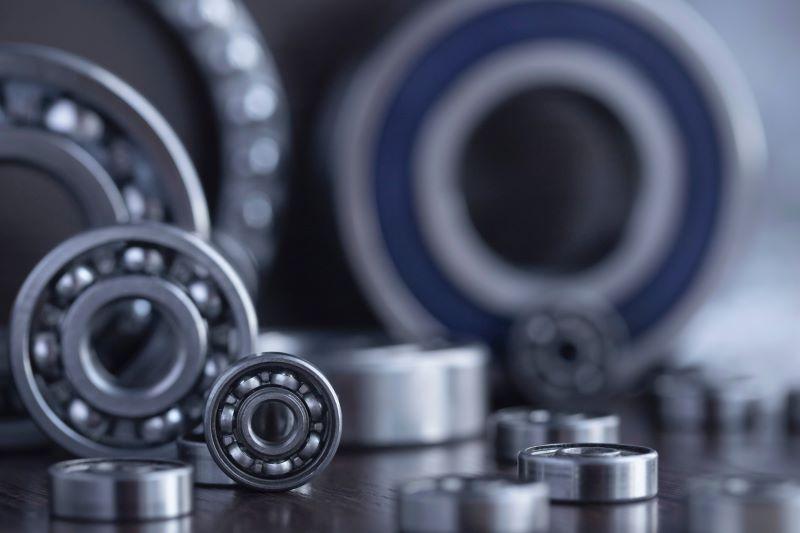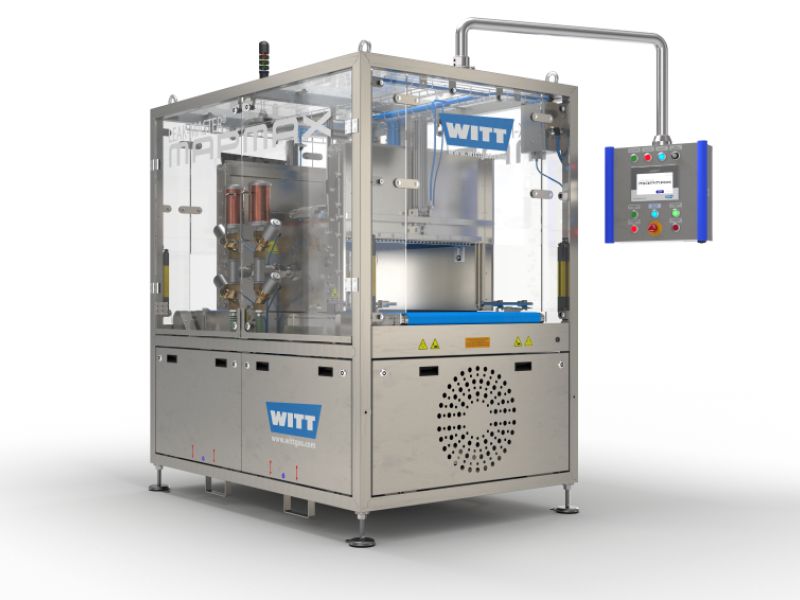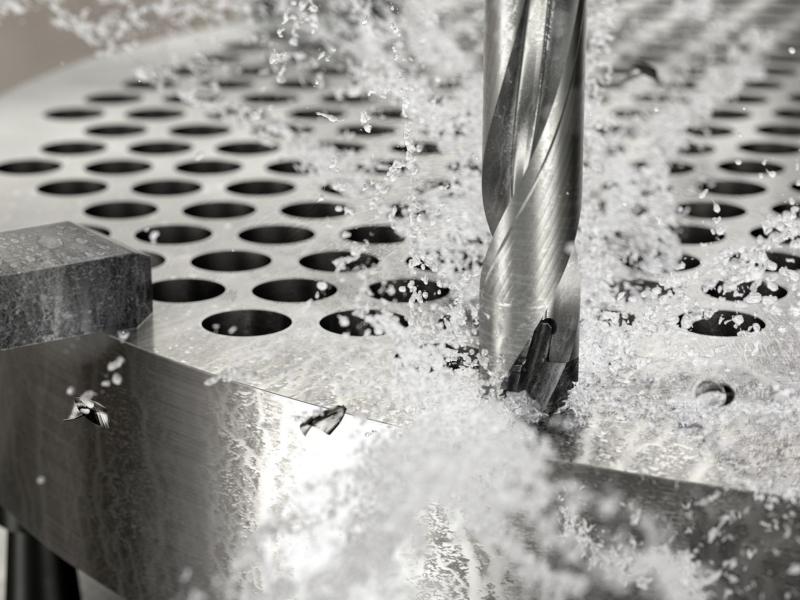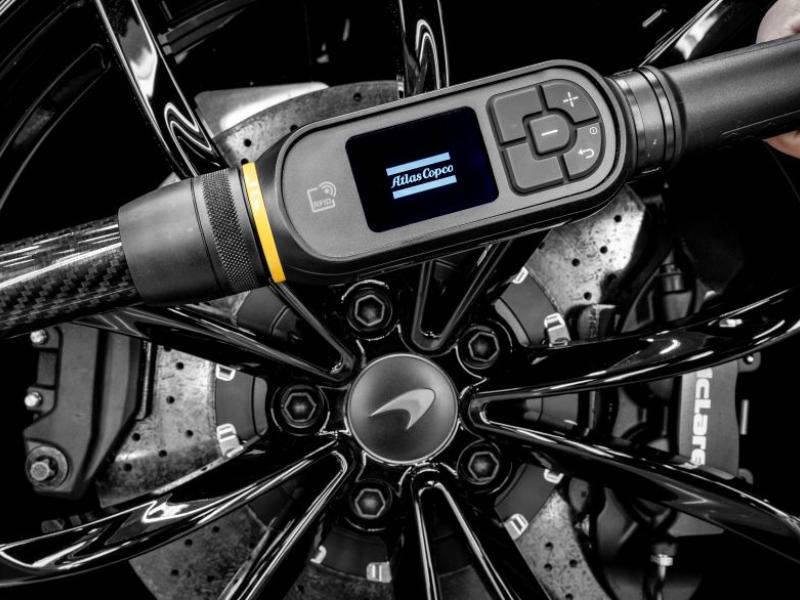Bearings are the unsung heroes of machinery, quietly supporting the loads and movements that keep our world turning. What’s more, demand for bearings is growing: Mordor Intelligence predicts the global market will experience a compound annual growth rate (CAGR) of 8.5 per cent between now and 2029. But with so many options available, selecting the right bearing for your application can be a daunting task. Here, Chris Johnson, managing director at specialist bearing supplier SMB Bearings, unravels the complexities of bearings and offers expert guidance on what to choose and when.
Industrial bearings are versatile components found in a multitude of applications across various industries. In the automotive sector, they are integral to wheel hubs, transmissions, and engines, ensuring smooth rotation and movement.
Manufacturing machinery relies on bearings for efficient operation in conveyors, pumps, and machine tools, while the aerospace and defense industries utilize them in aircraft engines and missile guidance systems for reliability under extreme conditions. Power generation equipment, mining machinery and construction equipment all depend on bearings to withstand heavy loads and harsh environments.
Additionally, bearings play essential roles in marine propulsion systems, rail transportation, medical devices, food processing equipment and renewable energy systems. This demonstrates their widespread importance in facilitating motion, reducing friction, and supporting loads across diverse industrial applications.
When delving into the world of bearings, it’s essential to understand the various types available.
Different types of bearings
Ball bearings, the workhorses of countless applications, offer versatility in handling radial and axial loads. Angular contact bearings, for example, excel in supporting heavy axial loads, while self-aligning ball bearings accommodate shaft and housing misalignment. Additionally, miniature ball bearings, characterized by their small size and lightweight design, are ideal for applications requiring precise rotational motion in constrained spaces.
Roller bearings, employing steel rollers instead of balls, excel in applications with heavy radial loads. Cylindrical roller bearings, known for their high radial load capacity and moderate thrust capacity, are commonly used in gearboxes and machine tools. Spherical roller bearings, on the other hand, are designed to accommodate misalignment and heavy axial loads, making them suitable for applications such as conveyor systems and paper mills.
Thrust bearings, whether ball or roller, specialize in axial loads, while needle roller bearings offer compact solutions for space-constrained applications. Tapered roller bearings, featuring tapered rollers and raceways, are capable of supporting both radial and axial loads in one direction.
Material matters
Once the bearing type is identified, material selection becomes paramount. Choosing the right bearing material involves considering various factors such as operating conditions, environmental factors, load requirements, speed, and lubrication. Different materials offer unique properties suited to specific applications.
Steel bearings, including SAE52100 Chrome Steel and stainless steel grades, boast durability and corrosion resistance. SAE52100 Chrome Steel, renowned for its high hardness and wear resistance, finds widespread use in demanding industrial applications. Stainless steel variants, such as 440 Grade Martensitic and AISI316 Austenitic, excel in corrosive environments, ensuring prolonged bearing life.
Plastic bearings, such as Acetal resin and Polytetrafluoroethylene (PTFE), find utility in chemical and food processing industries due to their chemical resistance and lubrication-free operation. PTFE, in particular, offers low friction and a wide temperature range making it suitable for both low and high temperature applications. Additionally, plastic bearings are lightweight and non-corrosive, making them ideal for applications requiring clean operation.
Ceramic bearings, including Zirconia and Silicon Nitride, offer exceptional performance in high temperature and corrosive environments. Zirconia, known for its hardness and thermal stability, finds application in demanding marine and automotive sectors. Silicon Nitride, with its low thermal expansion, high stiffness and low out-gassing, is favored in precision machinery and medical devices.
Choosing the right bearings
Navigating the multitude of variables in bearing selection demands a systematic approach. It is essential to evaluate factors like environment, size, speed, load, tolerances, and lubrication requirements.
For instance, marine applications demand bearings resilient to moisture and corrosion, making full ceramic or marine-grade stainless steel bearings ideal choices. Understanding the application's nuances ensures optimal performance and longevity.
When selecting bearings for high-speed applications, factors such as bearing design, material, and lubrication become critical. High-speed bearings require precise manufacturing techniques and materials with low friction coefficients to minimize heat generation and maintain operational stability.
Additionally, for applications with heavy axial loads, selecting bearings with proper cage design and material is essential to prevent cage deformation and ensure reliable performance under load.
Choosing the right lubricant
Lubrication selection is crucial, with options ranging from grease to oil, each offering distinct advantages based on speed, temperature, and load requirements.
In industries where standard lubricants fall short, specialized lubricants are indispensable for ensuring optimal performance and compliance with industry regulations.
For instance, in the food and beverage sector, where hygiene is paramount, non-toxic and water-resistant lubricants meeting stringent industry standards are imperative to prevent contamination. Similarly, in low torque applications, dry lubricants or greases with ultra-low viscosity are essential to minimize friction and energy consumption.
At SMB Bearings’ purpose-designed relubrication facility, industry-leading technology is used to clean bearings thoroughly and replace existing lubricants with specialized formulations tailored to specific application requirements. SMB Bearings’ team of experts is equipped to provide personalized advice on selecting the right lubricant for your needs, ensuring optimal performance and longevity.
The specialist offers a comprehensive range of specialized lubricants, including cleanroom lubricants, dampening greases, food-safe greases, high-temperature lubricants, low-temperature lubricants, molybdenum disulphide coatings, perfluorinated lubricants, radiation-resistant lubricants, vacuum lubricants, waterproof greases, and solid polymer/molded oil lubrication.
Maintaining bearing health
Extending bearing lifespan hinges on meticulous maintenance practices. While bearings aren't impervious to wear, proactive measures can mitigate premature failure.
Avoiding contamination through proper sealing and lubrication safeguards against abrasive damage and corrosion. Careful installation techniques prevent issues like brinelling and electrical fluting, preserving bearing integrity. Matching bearings to appropriate loads and temperatures prevents overheating-induced failures.
Regular inspection and monitoring of bearing condition are also vital for early detection of potential issues. Techniques such as vibration analysis, temperature monitoring, and lubricant analysis can provide valuable insights into bearing health and help identify emerging problems before they escalate into costly failures.
In instances of recurrent failures, consulting bearing specialists like SMB Bearings is prudent. Tailored solutions addressing size, type, material, and lubrication deficiencies ensure sustained performance and cost-effectiveness.
In conclusion, selecting and maintaining bearings demands diligence and expertise. At SMB Bearings’ focus lies on small and miniature ball bearings, with tailored advice and support helping customers to navigate the intricate world of bearings with confidence, ensuring smooth operations and longevity across diverse applications.For further information please visit http://www.smbbearings.com/.






